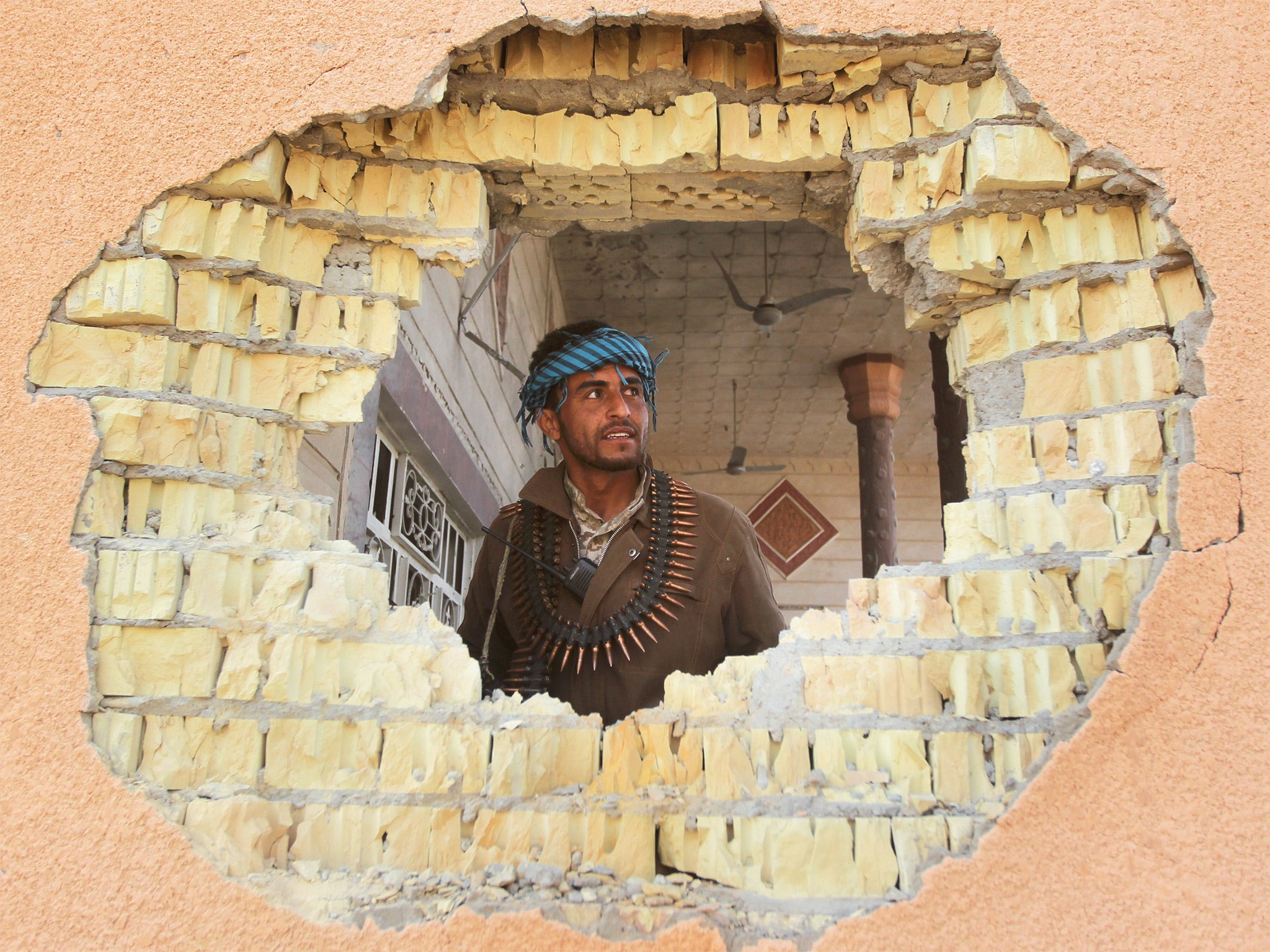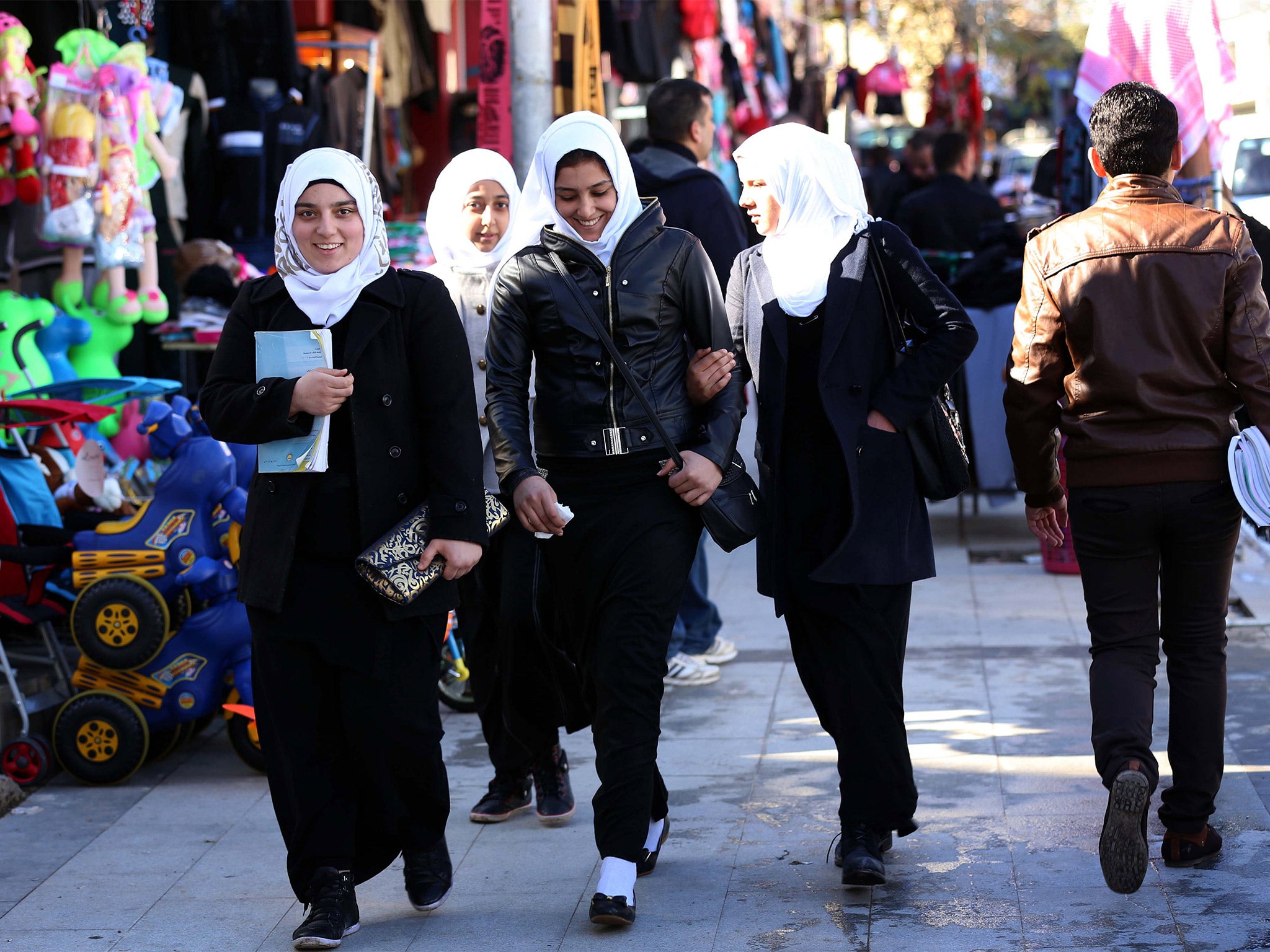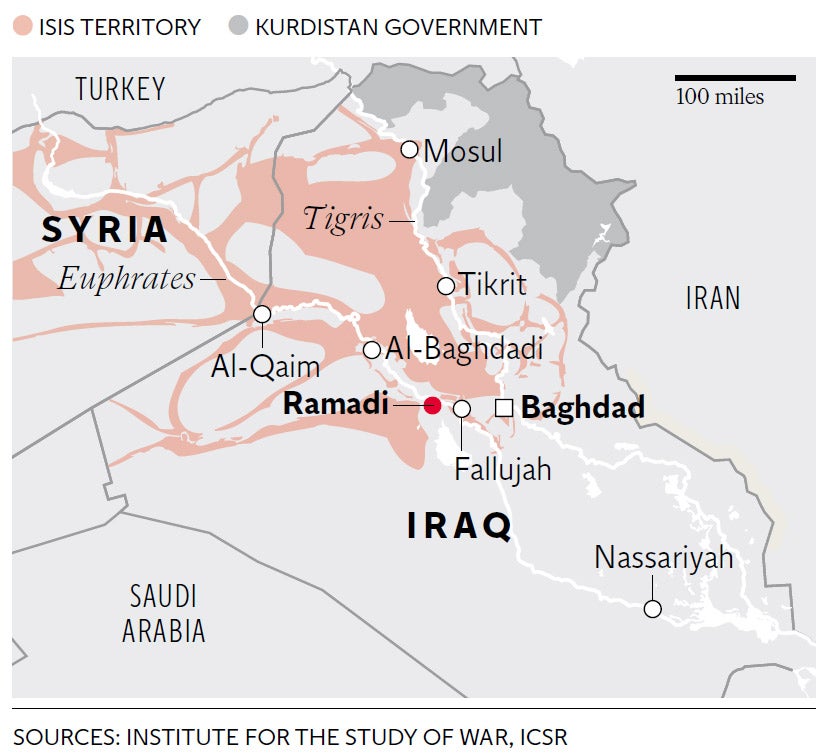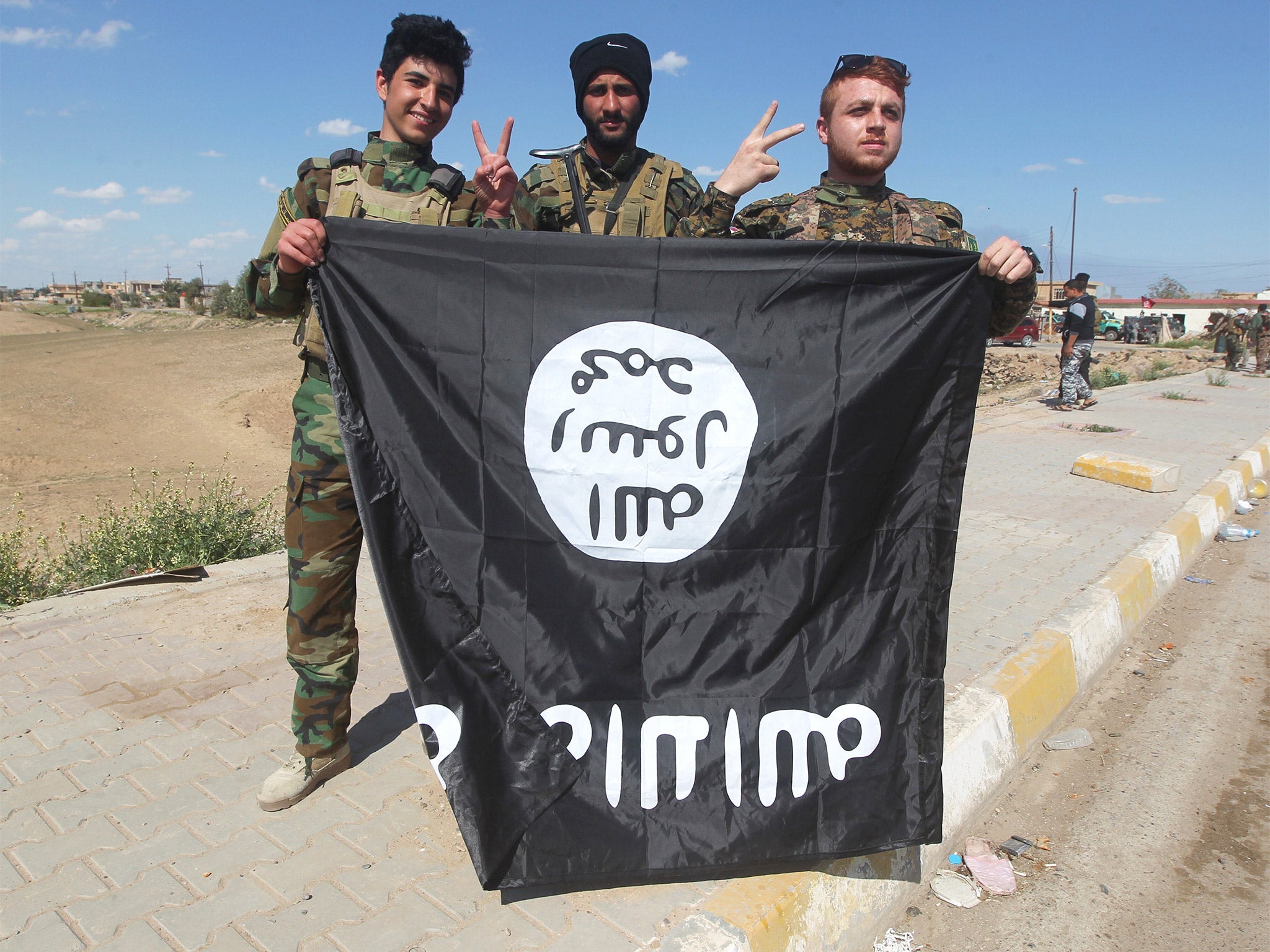Life under Isis: Sunnis face an even bleaker future in Iraq if the militants' reign of terror is finally defeated
Inside the 'Islamic State' - part four: Patrick Cockburn hears how moderate Sunnis - many fighting against jihadists - have no confidence in the 'corrupt' Shia government in Baghdad

Mahmoud Omar, a young Sunni photographer, is angered though not entirely surprised by the way in which the Baghdad government continues to mistreat his fellow Sunnis. Political leaders inside and outside Iraq all agree that the best, and possibly the only, way to defeat Isis is to turn at least part of the Sunni Arab community against it.
The idea is to repeat the US success in 2006-07 in supporting the Sunni “Awakening Movement” which weakened, though it never destroyed, al-Qaeda in Iraq, the predecessor of Isis. Now as then, many Sunnis hate the extremists for their merciless violence and enforcement of outlandish and arbitrary rules on personal behaviour that have no connection to even the strictest interpretation of sharia.
The fact that so many Sunnis are alienated from or terrified by Isis should present an opportunity for Baghdad, since Prime Minister Haider al-Abadi’s government is meant to be more inclusive than that of his predecessor, Nouri al-Maliki. Increasingly aggressive sectarian policies pursued by Mr Maliki during his eight years in power are now blamed for turning peaceful protests by Sunnis into armed resistance and pushing the Sunni community into the arms of Isis. This is an over-simplified version of recent history, but with the new government lauded internationally for its non-sectarian stance, the Sunni hoped they would face less day-to-day repression. “Isis has shocked many Sunni by its actions,” says Mahmoud. “But instead of the government treating us better to win us over, they are treating us even worse.”
As an example of this he cites the behaviour of police in Ramadi, the capital of the vast and overwhelmingly Sunni province of Anbar. His family comes from the city, which used to have a population of 600,000. Now 80 per cent have fled the fighting as Isis and government forces battle for control. Isis launched seven almost simultaneous suicide bomb attacks last week and was already holding 80 per cent of Ramadi.
The situation inside the government-held enclave is desperate, with shortages of food, fuel and electricity. Trucks bringing in supplies have to run the gauntlet of Isis checkpoints and ambushes. Food prices have risen sharply and in outlying cities, like al-Qaim and al-Baghdadi, Mahmoud says that “the people are reduced to eating fodder.”

Schools are closed to pupils because they are full of refugees. But in the midst of this crisis, Mahmoud – who asked for his real name not to be published – says the local police are as predatory and corrupt as ever when it comes to dealing with the Sunni.
He says that in one police station in the government-held part of Ramadi “the police go on arresting Sunni, torturing them and refusing to release them until their families come up with a bribe. I know one man who was in there for a week before his family paid the police $5,000 to get him released.”
All the old methods of surveillance remain in place with shopkeepers forced to spy on their customers and hand in daily reports to the police. Predictably, Mahmoud dismisses as “promises and words” the pledges of the new Abadi government to be more even-handed – intentions the Americans and Europeans apparently take at face value.
As a photographer and educated member of a politically moderate, well-off family, Mahmoud would be seen by Isis as a natural enemy.
His family have lost much because of the jihadist group’s takeover of Anbar. His father only stayed in Ramadi until recently because he wanted to safeguard two houses he owned. A third house in Fallujah has been taken over by Isis and the family doesn’t know what has happened to it; Isis sends officials door to door and, if the owner of a house has fled, they give him 10 days to return or they confiscate the property.
But for all his dislike of Isis, Mahmoud would have great difficulty trusting the Baghdad government. This is because a relative, Muad Mohammed Abed, who was a teacher and has a wife and daughter, has been in prison since 2012, under sentence of death for murder.
It is a crime he and his family vehemently deny he committed, saying that the only evidence against him is a confession obtained after torture. They have photographs of Muad taken after his interrogation, showing him covered in bruises and burns. His sentence was ultimately quashed, but he remains in jail. A promised retrial may be a long time coming because there are 1,500 similar cases to be heard by a court before his turn comes. His wife, who visits him in prison, says that he is kept in a cell four metres square with seven other prisoners. They are forbidden to have a radio or television.
Muad’s experience is fairly common. Many of the young Sunni men from villages near Fallujah are in prison awaiting execution because they have been tortured into confessing to capital crimes. The only way for them to be freed is through a large bribe to the right official.
Mahmoud recalls that in 2012 he investigated 12 cases in which people were tortured to death, “including a pharmacist who was arrested when he refused to supply drugs to soldiers and police at checkpoint near his pharmacy”.

Most of Mahmoud’s family have now fled to Kurdistan. He sees their misfortunes as mirroring the suffering of the Sunni community as a whole. He fears that the Iraqi Sunnis will be ground to pieces in the struggle between Isis and the government and that, as Isis is pushed back, the Sunni community will share in its defeat so “we will end up like the Christians who are being forced out of the country”.
Yet for all Mahmoud’s passionate sense of injustice, his belief that the government is irredeemably anti-Sunni is only part of the story. Sunni and Shia have both used mass violence against one another’s communities in the past 50 years, but the Sunni have most often been the perpetrators. The explosive growth of sectarian killings in 2012 to 2014, when 31,414 civilians were killed according to Iraqi Body Count, very much reflects the growth of Isis.
The group carried out massacres of Shias and Yazidis as a matter of policy, and then broadcast videos of the murders. Isis bombers targeted bus queues, funerals, religious processions and anywhere else where Shia gathered and could be killed. The obvious motive was anti-Shia and a desire to destabilise the government, but there was also a carefully calculated policy at work of provoking Shia into retaliation against Sunni.
Isis knew that this would leave the Sunni with no alternative but to fight and die alongside them.
As Isis’s columns advanced last year, its fighters carried out massacres to spread fear just as Saddam Hussein had done against the Kurds and Shia a quarter of a century earlier. When the government’s Badush prison, near Mosul, was captured by Isis, its fighters slaughtered 670 Shia prisoners. At Camp Speicher, outside Tikrit, 800 Shia cadets were lined up in front of trenches and machine-gunned. Pictures of the scene resemble those of atrocities carried out by the German army in Russia in 1941. In August, when Isis fighters stormed into Kurdish-held regions, they targeted the Yazidis as “pagans” to be murdered, raped and enslaved.
The Isis advance in Iraq had largely ended by last October. Since then it has retreated, though not very far. Where Shia militias or Kurdish Peshmerga have successfully counter-attacked, the Sunni have generally fled before their towns and villages were recaptured – or they have been subsequently expelled. It is not surprising that the Shia and Kurdish commanders fighting back are not in a forgiving mood. There is an almost universal belief among last year’s victims – be they Shia, Yazidis, Christians or Kurds – that their Sunni Arab neighbours collaborated with Isis.

Where Isis is beaten back, the Sunni may hold on to their strongholds where they are the great majority, but where populations are mixed they are likely to be losers. A final ethnic and sectarian shake-out in Iraq seems to be under way.
Is the defeat of Isis, and with it the Sunni, inevitable? In the long term it is difficult to see any alternative outcome in Iraq because they make up only a fifth of the population and their more numerous enemies are backed by the US and Iran. The land mass held by Isis may be large, but it was always poor and is becoming more impoverished.
There is little electricity. In Mosul, Ahmad, a shopkeeper in the Bab al-Saray area, says: “We are getting only two hours of electricity every four days.” There are private generators, he says, “but since there are no jobs, people have no money to pay their electricity bills or for generator supply services”.
This has had the effect of reducing some prices because there is no power for fridges and freezers, meaning food cannot be stored for long.
Deteriorating living conditions mean that many want to leave Mosul, but they are prevented by Isis, which does not want to find that its greatest conquest has become a ghost town. In any case, it is not clear where the one million people still in Mosul would go.
As the fighting intensifies across Iraq this spring, the Sunni cities and towns are likely to be devastated. Mahmoud may well be right in thinking that the Sunni will be forced to take flight or become a vulnerable minority like the Christians.
Even if the government in Baghdad wanted to share power with the Sunni, Isis has ensured through its atrocities that this will be near impossible. For its part, Isis has been raising tens of thousands more fighters – they may now number well over 100,000 in Iraq and Syria. The so-called Islamic State will not go down without fierce resistance and, if it does fall, the Sunni community will be caught up in its destruction.
Tomorrow: How can the West best help to defeat the Islamic State?
Join our commenting forum
Join thought-provoking conversations, follow other Independent readers and see their replies
0Comments